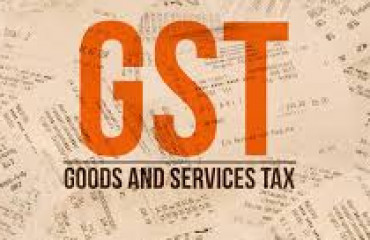
The goods and services tax (GST) council’s decision to impose a 5% tax on hospital room rents that are over ₹5,000 a day has left hospitals in a fix over how to implement it because most offer treatment packages that already include room rent.
The goods and services tax (GST) council's decision to impose a 5% tax on hospital room rents that are over ₹5,000 a day has left hospitals in a fix over how to implement it because most offer treatment packages that already include room rent.
Besides, hospitals are also concerned about the non-availability of input tax credit in this case as cascading of embedded taxes will increase the cost of treatment for patients.
There is also lack of clarity over how insurance claims will be made if room charges are excluded from the package. Hospitals and medical associations are likely to make a representation to finance minister Nirmala Sitharaman before the tax comes into force on 18 July.
The GST council led by Sitharaman during a two-day meeting in Chandigarh last week decided that hospital room rents (excluding ICU) exceeding ₹5,000 per day per patient shall be taxed at 5% without input tax credit.
The decision was part of a larger rate rationalization exercise to boost GST revenue collections with the compensation scheme for states coming to an end. The council did away with a raft of exemptions and increased GST rates on others, besides correcting inverted duties.
Dr Deepak Namjoshi, director, CritiCare Asia Multispeciality Hospitals, said the 5% tax was ill-defined and will put an additional burden on the patient's well-being and the country's healthcare system. "Hospital billing is not as simple as adding GST on the per-day bed usage. It is different from any other consumer-facing industry. There is an array of costs incurred and calculated on the billing. There has to be adequate detailing, and a set procedures for calculating and differentiating the added cost," he said.
He said insurance companies have different packages under which bed charge is a small component. "The key questions that require immediate attention are on the application, modification of packages, and execution of the additional GST."
Hospital associations pressed for a rollback of the measure by the GST council. Dr Girdhar Gyani, director general, AHPI, said considering hospitals are already facing severe financial issues, they will have no option but to pass on this burden to patients.
"Hospital beds are not hotel beds. Patients do not come for business or recreation but to address the health issues. The cost of beds in tertiary and quaternary care hospitals is high for all valid reasons and therefore AHPI has called upon the Union finance minister to withdraw this recommendation," said Gyani.
Tax professionals pointed out that a slew of clarifications will be needed from the GST Council to implement the decision. Pratik Jain, partner, Price Waterhouse & Co LLP said healthcare as a sector has to be taxed, ideally it should be with input tax credit to ensure that the GST chain is not broken.
